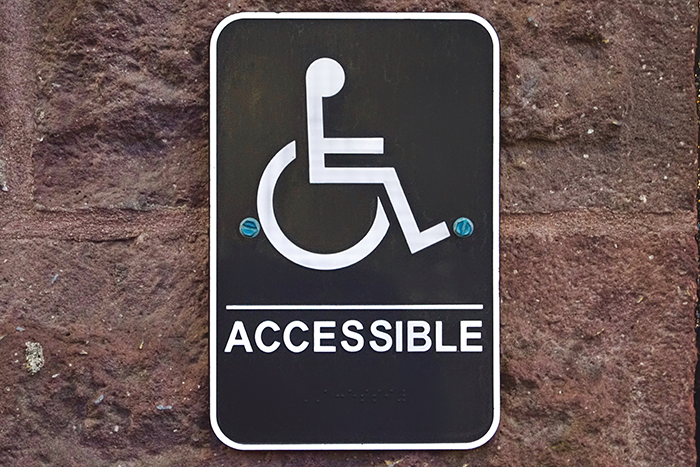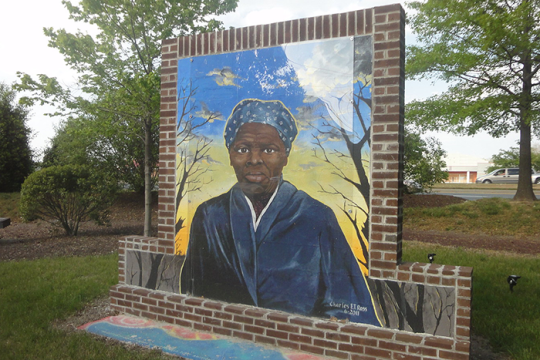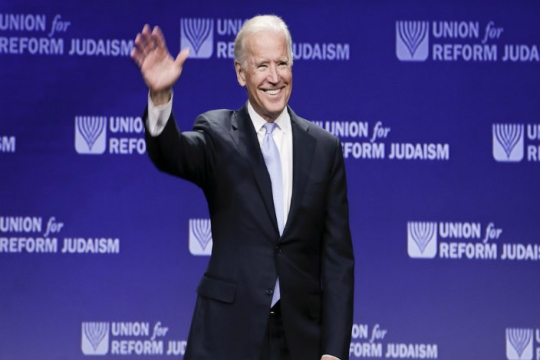
Today we celebrate the 32nd Anniversary of the Americans with Disabilities Act, the landmark legislation that prohibits discrimination against people with disabilities in employment, transportation, public accommodations, communications, and access to state and local government' programs and services, and more. This law was passed thanks to the incredible and tireless efforts of the disability rights movement and activists who shared their stories and challenged injustice.
To mark this anniversary, the Religious Action Center and the Interfaith Disability Advocacy Coalition (IDAC) present a video celebration and call to action. The individuals on this video, representing many faith traditions, speak to why their faith calls them to care, what the ADA means to them, and what can still be improved. It features notable faith leaders including Rabbi Jonah Pesner of the Religious Action Center of Reform Judaism, Presiding Bishop Michael Curry of The Episcopal Church, and Imam Saffet Catovic of the Islamic Society of North America, as well as Aaron Kaufman of the Jewish Federations of North America, Jesus Orozco of United Methodist Church, Eileen Schofield of L'Arche, and Cheryl Wicks of Mosaic.
In his reflection on the 32nd anniversary, Rabbi Jonah Pesner says, "Jewish tradition teaches us of our obligation to ensure equal access for all people and to help facilitate the full participation of individuals with disabilities in public life. In Leviticus 19:14 we are commanded, "You shall not insult the deaf, or place a stumbling block before the blind." Stumbling blocks come in many forms: unequal access or subpar educational and employment opportunities, economic insecurity, lack of accessible housing and transportation, stigma and discrimination, and lack of access to healthcare. Further, in Pirkei Avot 2:5, we are taught 'Do not separate yourself from the community.' Due to systemic barriers, many people living with disabilities are consistently excluded from the community."
The ADA was an important step towards removing these barriers and allowing access to the community, but there is much left to be done. We look to our elected officials to enact further legislation that will break down these barriers and promote full access and inclusion.
Take Action
Due to out-of-date benefits and caps on earned income and assets, SSI, the federal program that provides a minimum level of income to impoverished people with severe disabilities and older adults, is trapping people in poverty -- providing financial assistance that is now 26% below the federal poverty level. The SSI program needs to be updated, and the SSI Restoration Act will lift more than 3 million vulnerable Americans out of poverty by increasing SSI benefits to match the federal poverty level and modernizing caps on earned income and assets that have not been updated since the 1980s. Urge your Members of Congress to co-sponsor and pass the SSI Restoration Act now!
Passed in 2014, the Achieving a Better Life Experience (ABLE) Act allowed people with disabilities up to age 26 and their families to establish tax-advantaged savings and investment plans called ABLE Accounts. Although the ABLE Act continues to provide an important measure of financial security to people with disabilities, the law should be adjusted to allow anyone who acquires a disability after they turn 26 to create an ABLE account. Urge your members of Congress to cosponsor the ABLE Age Adjustment Act to help millions of additional people with disabilities save for the future.
Related Posts

Announcing Jewish Disability Advocacy Day 2024: Ensuring We All Flourish!

Continuing to Highlight Role Models with Disabilities
